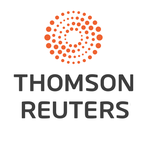The Digital Giants in the Crosshairs: EU's Antitrust Crusade
September 10, 2024, 3:38 pm
Google
Location: United States, New York
In a world where giants roam the digital landscape, the European Union has taken a stand. The recent rulings against Google and Apple mark a pivotal moment in the ongoing battle for fair competition. These decisions are not just legal victories; they are a clarion call for accountability in the tech industry.
The European Commission has been relentless. It has wielded its antitrust laws like a sword, cutting through the tangled web of corporate practices that stifle competition. Google, the titan of search engines, has been in the crosshairs for years. The latest ruling confirms a €2.42 billion ($2.7 billion) fine, a reminder that dominance does not equate to immunity. The Court of Justice of the European Union (CJEU) upheld the Commission's stance that Google abused its power by favoring its own services over smaller competitors. This is a classic David versus Goliath scenario, where the little guys are finally getting a fighting chance.
The roots of this battle stretch back to 2017. That’s when the European Commission first imposed the fine, accusing Google of using its price comparison service to gain an unfair edge. The ruling was a wake-up call. It signaled that the EU was serious about leveling the playing field. Google’s appeal was a desperate attempt to overturn a decision that could reshape the competitive landscape. But the CJEU’s recent judgment has put that hope to rest. The judges made it clear: abusing a dominant position is not just frowned upon; it’s illegal.
This ruling is part of a larger narrative. Over the past decade, Google has amassed a staggering €8.25 billion in fines from the EU. Each penalty is a brick in the wall of accountability being built around Big Tech. The company is currently entangled in additional legal battles concerning its Android operating system and advertising practices. The stakes are high. If the EU prevails, Google may be forced to divest parts of its lucrative adtech business. This could alter the very fabric of online advertising.
Meanwhile, Apple has also felt the heat. The EU’s antitrust chief, Margrethe Vestager, has been a formidable opponent for the tech giant. The recent court ruling regarding Apple’s tax arrangements in Ireland is a significant blow. The court upheld a €13 billion ($14.4 billion) tax bill, asserting that Apple received illegal state aid. This ruling is a game-changer. It underscores the EU’s commitment to tax justice and fair competition.
Apple’s tax practices have long been scrutinized. The company has benefited from favorable tax rulings that allowed it to pay a fraction of what other companies owe. The court’s decision sends a clear message: no company is above the law. Apple’s disappointment is palpable, but the ruling is final. The tech giant must now reckon with the consequences of its past actions.
These rulings are not just about fines. They represent a shift in the balance of power. The EU is positioning itself as a global leader in regulating Big Tech. This could inspire other regions to follow suit. The implications are vast. Companies may need to rethink their strategies, ensuring compliance with stricter regulations. The days of operating in a regulatory gray area may be numbered.
The EU’s approach is methodical. It is not merely reacting to scandals; it is proactively shaping the future of digital commerce. The recent victories for Vestager could embolden her successor to continue this crusade. The message is clear: the EU will not tolerate anti-competitive behavior. It is a bold stance in a world where many governments struggle to keep pace with the rapid evolution of technology.
The implications extend beyond Europe. As the EU tightens its grip on tech giants, other countries may feel pressure to adopt similar measures. The global tech landscape is interconnected. What happens in Europe can reverberate worldwide. Companies that operate on a global scale must navigate a complex web of regulations. This could lead to a more equitable digital marketplace, where competition thrives and consumers benefit.
However, the road ahead is fraught with challenges. Tech companies are not going down without a fight. They have deep pockets and powerful lobbyists. The battle lines are drawn. The EU must remain vigilant. It must continue to advocate for fairness and transparency in the digital economy.
In conclusion, the recent rulings against Google and Apple are monumental. They signify a turning point in the fight for fair competition. The EU is sending a clear message: the age of unchecked corporate power is over. As the digital landscape continues to evolve, these decisions will shape the future of technology. The giants may be powerful, but the collective will of regulators and consumers can level the playing field. The battle is far from over, but the tide is turning. The digital giants are learning that accountability is not just a buzzword; it’s a reality they must face.
The European Commission has been relentless. It has wielded its antitrust laws like a sword, cutting through the tangled web of corporate practices that stifle competition. Google, the titan of search engines, has been in the crosshairs for years. The latest ruling confirms a €2.42 billion ($2.7 billion) fine, a reminder that dominance does not equate to immunity. The Court of Justice of the European Union (CJEU) upheld the Commission's stance that Google abused its power by favoring its own services over smaller competitors. This is a classic David versus Goliath scenario, where the little guys are finally getting a fighting chance.
The roots of this battle stretch back to 2017. That’s when the European Commission first imposed the fine, accusing Google of using its price comparison service to gain an unfair edge. The ruling was a wake-up call. It signaled that the EU was serious about leveling the playing field. Google’s appeal was a desperate attempt to overturn a decision that could reshape the competitive landscape. But the CJEU’s recent judgment has put that hope to rest. The judges made it clear: abusing a dominant position is not just frowned upon; it’s illegal.
This ruling is part of a larger narrative. Over the past decade, Google has amassed a staggering €8.25 billion in fines from the EU. Each penalty is a brick in the wall of accountability being built around Big Tech. The company is currently entangled in additional legal battles concerning its Android operating system and advertising practices. The stakes are high. If the EU prevails, Google may be forced to divest parts of its lucrative adtech business. This could alter the very fabric of online advertising.
Meanwhile, Apple has also felt the heat. The EU’s antitrust chief, Margrethe Vestager, has been a formidable opponent for the tech giant. The recent court ruling regarding Apple’s tax arrangements in Ireland is a significant blow. The court upheld a €13 billion ($14.4 billion) tax bill, asserting that Apple received illegal state aid. This ruling is a game-changer. It underscores the EU’s commitment to tax justice and fair competition.
Apple’s tax practices have long been scrutinized. The company has benefited from favorable tax rulings that allowed it to pay a fraction of what other companies owe. The court’s decision sends a clear message: no company is above the law. Apple’s disappointment is palpable, but the ruling is final. The tech giant must now reckon with the consequences of its past actions.
These rulings are not just about fines. They represent a shift in the balance of power. The EU is positioning itself as a global leader in regulating Big Tech. This could inspire other regions to follow suit. The implications are vast. Companies may need to rethink their strategies, ensuring compliance with stricter regulations. The days of operating in a regulatory gray area may be numbered.
The EU’s approach is methodical. It is not merely reacting to scandals; it is proactively shaping the future of digital commerce. The recent victories for Vestager could embolden her successor to continue this crusade. The message is clear: the EU will not tolerate anti-competitive behavior. It is a bold stance in a world where many governments struggle to keep pace with the rapid evolution of technology.
The implications extend beyond Europe. As the EU tightens its grip on tech giants, other countries may feel pressure to adopt similar measures. The global tech landscape is interconnected. What happens in Europe can reverberate worldwide. Companies that operate on a global scale must navigate a complex web of regulations. This could lead to a more equitable digital marketplace, where competition thrives and consumers benefit.
However, the road ahead is fraught with challenges. Tech companies are not going down without a fight. They have deep pockets and powerful lobbyists. The battle lines are drawn. The EU must remain vigilant. It must continue to advocate for fairness and transparency in the digital economy.
In conclusion, the recent rulings against Google and Apple are monumental. They signify a turning point in the fight for fair competition. The EU is sending a clear message: the age of unchecked corporate power is over. As the digital landscape continues to evolve, these decisions will shape the future of technology. The giants may be powerful, but the collective will of regulators and consumers can level the playing field. The battle is far from over, but the tide is turning. The digital giants are learning that accountability is not just a buzzword; it’s a reality they must face.

